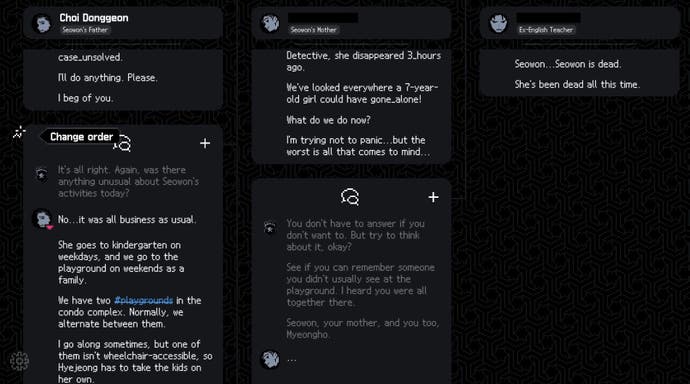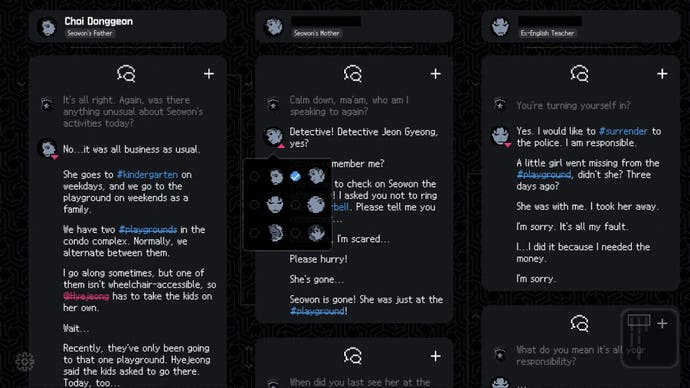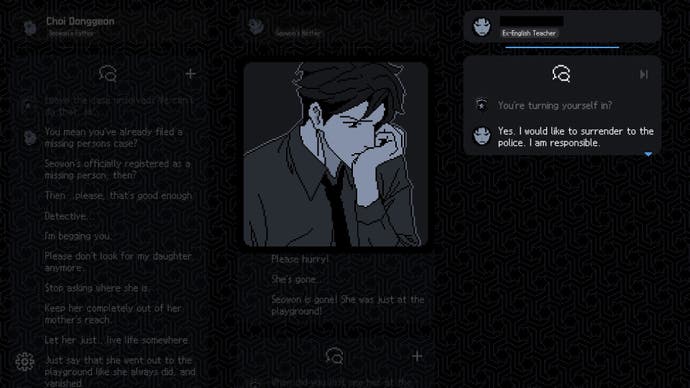No Case Should Remain Unsolved finds truth in distorted memories
Murder she thought.
Memory is one of the mind's greatest mysteries. There's no consensus on how it works or what memories even are. I once read about how a memory could simply be a recollection of the last time you thought about that memory. It struck me as being a very sorrowful idea, and one that combines neatly with a personal belief: true death is when the last person who remembers you dies. Sure, someone can read your name on a gravestone, but it's that living memory which is truly you, and it's oddly terrifying to think it could be a fabrication. Even as I write this, though, I'm sure you can find a scientific paper which disagrees with the theory. It's like we all have a puzzle box trapped inside our heads but, since our minds are unique, every solution is different.
One thing is true though: unlike a computer, we can't simply switch out our brain when it's running out of space. Instead, it feels like our memories are crammed together, fighting for attention, until the weakest start to dissolve. Slivers might remain - a name without a face, a walk on the beach with a shadowy companion, a house lacking an address - but over time even those might begin to fade. Even if you try to hoard all those precious memories, there's a chance every recall in unknowingly erasing something important. It's this dance of memory loss and recall that the game No Case Should Remain Unsolved uses to craft its story.

A text-based detective game, No Case Should Remain Unsolved follows the retired Senior Inspector Jean Gyeong, who finds herself reexamining the disappearance of a girl named Seowan. Rather than investigating new evidence, though, Gyeong can only relive her memories of interviewing three suspects, Seowan's parents and the man who confessed to the kidnapping. Though the gameplay does heavily focus on reading the dialogue, there is a point-and-click element as you organise it by speaker and timeline. While time has broken these conversations down into mere fragments, within the pieces lie words which unlock lost sections of the interviews themselves. These recovered memories can have an odd tone though; some lack context, referring to events seemingly unconnected to the case, and others sound like they're being spoken by another person entirely. Slowly, it becomes clear the story of Seowan's disappearance reaches far beyond the initial three suspects.

Gradually, as I play, my PC screen becomes a physical representation of Gyeong's distorted memories. Despite attempting to organise the threads, I still end up with a jumbled mass of dialogue beneath one character. I know they weren't the speaker, but there isn't anyone on Gyeong's mental evidence board who suits the words better. Instead I'm left hunting down the correct word to reveal the next line of questioning I wish to explore. It's an act that feels so similar to how our own memories are threaded together: a single object in one memory can have the power to send us spiralling down a path and, by the time we reach the end, we can't remember where we started. Epiphanies are possible, though. As if I haven't just spent an hour poring over text, events suddenly start to slot together. A new character comes to light and, using the time stamps, I start restoring Gyeong's memories piece by piece, until the game starts playing with my own memory.
Alongside rearranging the police interviews, you're tasked with finding specific pieces of information and figuring out dates. Sometimes I know exactly where to look, at others, however, I end up re-exploring my recollections of someone's memories. It's these careful reexaminations which help transform the 'Ah-ha!' puzzle solving moments into something far more personal. By merging the narrative with the puzzles so tightly, and putting you in a constant state of reliving Gyeong's investigation, No Case Should Remain Unsolved touches upon a fear many of us secretly share.


We've all forgotten something. We've all returned to an event in our minds over and over again. Yet we never know whether these glimmers of the past have been twisted into new forms. In No Case Should Remain Unsolved, you see how Gyeong's reignited memories have constructed a new truth, and it grants us the chance to do the impossible - attempt faithful restoration. How this rediscovered knowledge affects Gyeong is in your hands. All I'll say is the endings successfully capture the bittersweet sensation that embracing the past often brings and I'll remember both for a long time.








